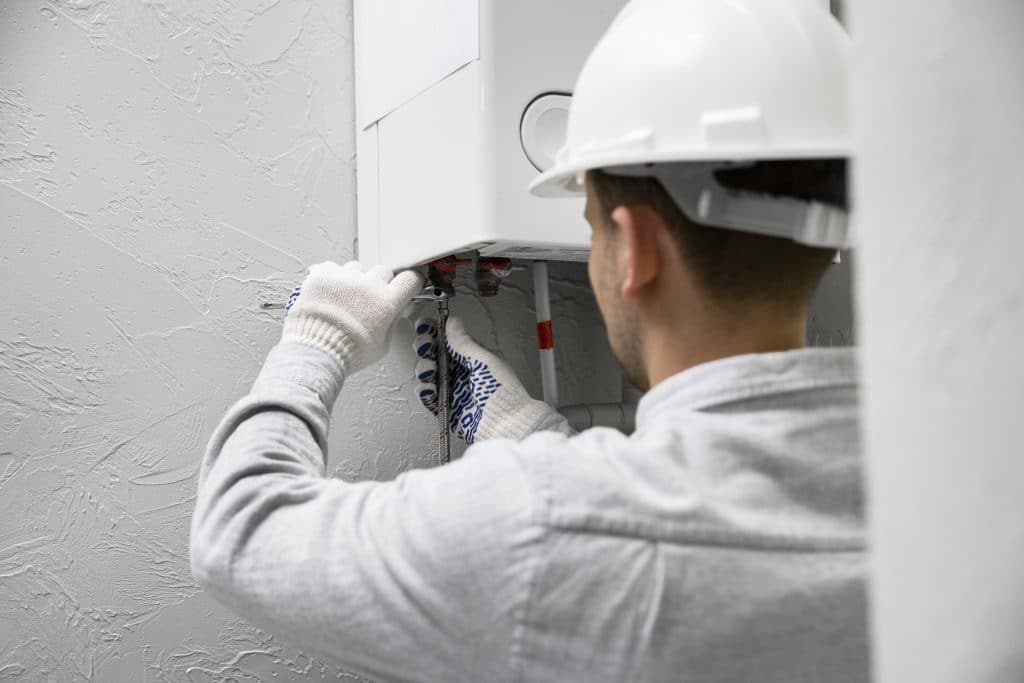When it comes to home comfort, few appliances are more critical than your water heater. From morning showers to doing the dishes, hot water plays an essential role in your daily routine. So when your water heater starts to act up, the sooner you spot the problem, the better.
As plumbing professionals with years of experience servicing, repairing, and replacing all types of water heaters, we’ve seen every issue under the sun. Below are the top signs your water heater might be on its last legs—and what you can do to fix it before a total breakdown catches you off guard.
1. Inconsistent Water Temperature
What you’ll notice: One minute the water’s hot, the next it’s lukewarm or icy.
Why it happens: This is often due to sediment buildup on the heating element, a failing thermostat, or a dying heating element—especially in older electric water heaters.
What to do: Flush your tank annually to prevent sediment buildup. If the problem persists, it’s time to call in a licensed plumber to inspect the unit or consider replacing the thermostat.
2. Discolored or Rusty Water
What you’ll notice: Brown or reddish water coming from the hot tap.
Why it happens: This could indicate rust inside your tank or deteriorating anode rods—especially if your heater is 8+ years old.
What to do: Try flushing your tank. If rust returns quickly, your tank may be corroding from the inside. You’ll want to replace the anode rod or start budgeting for a new water heater.
3. Strange Noises Coming from the Tank
What you’ll notice: Rumbling, popping, or banging sounds.
Why it happens: Sediment has hardened on the bottom of the tank and is interfering with the heating element. It can reduce efficiency and speed up tank deterioration.
What to do: Drain and flush the tank. If the noise continues, it’s a sign the buildup is too far gone—and replacement may be more cost-effective than repair.
4. Water Takes Too Long to Heat Up
What you’ll notice: Long waits for hot water—especially during peak usage times.
Why it happens: Aging components, thermostat problems, or an undersized water heater.
What to do: Have a professional inspect your system. If your household has grown, you may need a larger or more energy-efficient unit, such as a tankless water heater.
5. Leaks Around the Base of the Tank
What you’ll notice: Pooling water under or around the heater.
Why it happens: Could be caused by loose connections or internal tank failure due to corrosion.
What to do: Check the valves and fittings. If it’s not a connection issue, it’s likely the tank itself—requiring a full replacement to avoid flooding or water damage.
6. Hot Water Runs Out Too Fast
What you’ll notice: You’re constantly running out of hot water mid-shower or while washing dishes.
Why it happens: Sediment may be taking up space in the tank, or the dip tube (which directs cold water to the bottom of the tank) may be broken.
What to do: A professional flush can help, but if the dip tube is damaged or the tank is severely affected, consider replacing the unit.
7. It’s 10+ Years Old
What you’ll notice: Nothing yet—but it’s coming.
Why it matters: The average lifespan of a traditional water heater is 8–12 years. After that, efficiency drops and the risk of sudden failure rises dramatically.
What to do: Be proactive. Start planning for a replacement, even if it’s still working. Newer models are more efficient, save money long-term, and give peace of mind.
What to Do If You Spot Any of These Signs
Step 1: Shut off the power and water supply if you suspect a serious issue like leaking or overheating.
Step 2: Contact a licensed, local plumber. A trained technician can diagnose the issue and advise on whether repair or replacement makes more sense.

Step 3: If a replacement is needed, consider energy-efficient upgrades like tankless or hybrid water heaters. They reduce energy bills and deliver long-term reliability.
Final Thoughts: Don’t Wait for a Cold Shower
A failing water heater doesn’t just inconvenience your day—it can cause water damage, increase utility bills, and leave you scrambling for a replacement. By recognizing these warning signs early and acting quickly, you’ll extend the life of your system and avoid costly surprises.
Looking for a trustworthy plumber to inspect or replace your water heater? Get in touch with Cascade NorthWest Plumbing for fast, friendly service backed by years of hands-on experience.

